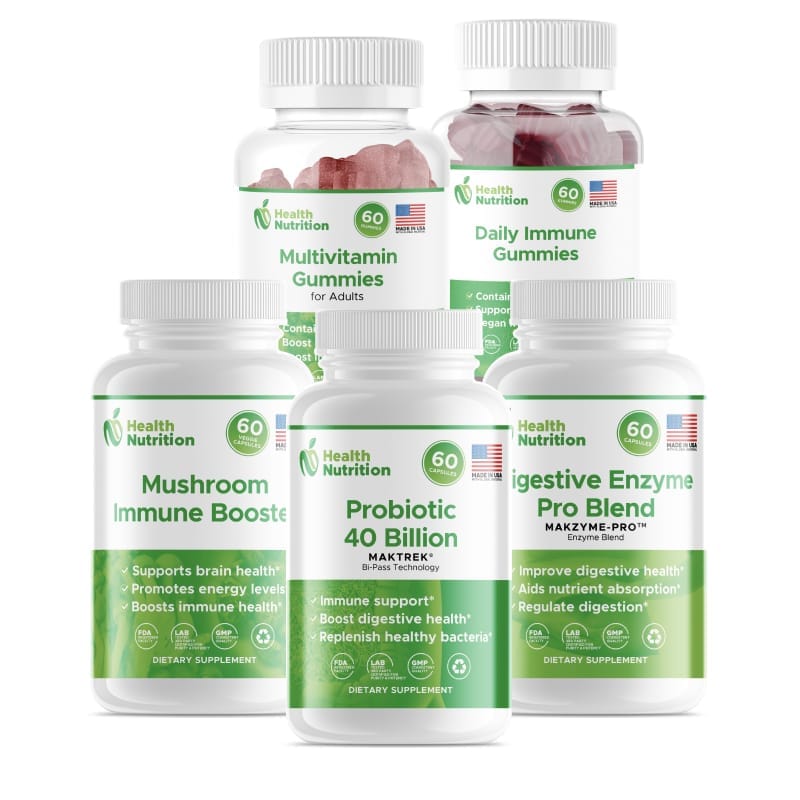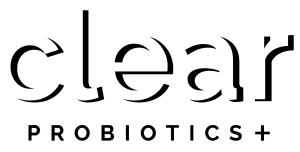Table of Contents
ToggleWhat is Acid Reflux?
What exactly is this devilish demon that wreaks havoc on our esophagus? Acid reflux causes stomach acids to flow back into the esophagus, leading to heartburn.
One might assume it’s simply triggered by indulging in spicy or greasy foods, but there’s more to it than meets the eye.
Stress and anxiety play a significant role in fueling this inferno within us.
In our modern chaotic lives filled with deadlines and obligations, stress has become a constant companion.
It tightens our muscles and throws our digestive system into disarray; hence acid reflux becomes an unwelcome guest at our dinner table.
Enter GERD – gastroesophageal reflux disease – a chronic condition that takes acid reflux to new heights (or rather depths) of torment.
The constant backflow of stomach acid irritates and damages the delicate tissue lining of the esophagus over time.
It leads to complications such as esophageal ulcers or even narrowing of the esophagus itself.

What Causes Acid Reflux?
Allow me to enlighten you on the culprits behind the fiery inferno which is acid reflux.
First and foremost, let’s pin the blame on our lovely friend, the lower esophageal sphincter (LES).
This muscular valve acts as a gateway between the stomach and the esophagus. Its primary responsibility is to prevent stomach acid from splashing back into our delicate esophagus.
It can weaken or relax at inappropriate times, allowing stomach acid to escape its confines and wreak havoc in our throats.
One major cause of acid reflux is indulging in large meals or overeating.
Many times that sumptuous feast may be your ticket to heartburn city. When we overeat, pressure builds up in the stomach, forcing its contents upward through your lower esophageal sphincter (LES).
Another cause of heartburn is those delectable deep-fried delights or greasy fast-food delicacies that can be your ticket to heartburn hell.
Fatty foods take their sweet time to digest properly and linger around in the stomach for longer periods than necessary.
As they linger there like unwelcome guests at a party gone wrong, they exert undue pressure on our LES until it gives way and allows that pesky stomach acid to escape.

What is GERD?
GERD, or gastroesophageal reflux disease, is a chronic condition where the stomach acid frequently flows back into the esophagus, causing intense discomfort and pain.
Let me tell you, folks, GERD is no joke. It’s like having a fire-breathing dragon living in your chest, scorching everything in its path.
There could be many culprits behind GERD’s villainous behavior.
Some say it’s due to a weakened LES caused by obesity or pregnancy – yes ladies, even the miracle of creating life can bring you closer to experiencing the horrors of GERD.
Others claim it’s because of an abnormality in the structure of your esophagus or an excessive production of stomach acid.
Whatever the case may be, one thing is clear: GERD wreaks havoc on our lives and demands immediate attention.

Acid Reflux, GERD, and Gut Health
Acid reflux and GERD (gastroesophageal reflux disease) are chronic conditions that can have a profound impact on our overall gut health.
It’s time we stop treating acid reflux as a mere annoyance and start recognizing the larger consequences it has on our digestive system.
Acid Reflux and GERD:
- Acid reflux occurs when the lower esophageal sphincter (LES) doesn’t close properly, allowing stomach acid to flow back into the esophagus. This malfunctioning of the LES can be due to a variety of reasons including dietary habits, certain medications, and other medical conditions.
- GERD is a more severe form of acid reflux. It’s characterized by chronic symptoms that can interfere with daily life, leading to complications such as esophagitis (inflammation of the esophagus) if left untreated.
Impact on the Esophagus:
- Constant exposure of the esophageal lining to stomach acid leads to inflammation and irritation. This prolonged exposure can damage the sensitive tissues of the esophagus, making it more susceptible to injury and even potential infections.
- This results in a familiar burning sensation, commonly referred to as heartburn. Regular occurrences of this sensation can greatly reduce a person’s quality of life and lead to a fear of eating certain triggering foods.
Wider Impact on Gut Health:
- The inflammation caused by GERD isn’t confined to the esophagus. It can lead to broader digestive issues, affecting areas beyond the immediate vicinity of the esophagus.
- The prolonged presence of stomach acid in the esophagus can trigger an immune response. This response is the body’s way of signaling distress, which in turn can exacerbate inflammation throughout the digestive system, leading to a cascade of digestive complications.
Effect on Gut Microbiota:
- This inflammation can disrupt the balance of beneficial bacteria in the gastrointestinal tract. When this balance is upset, it can pave the way for harmful bacteria to flourish, potentially leading to various gastrointestinal disorders.
- Gut imbalances might aggravate symptoms or lead to other digestive issues, such as Irritable Bowel Syndrome (IBS) or small intestinal bacterial overgrowth (SIBO).

Role of Probiotics:
- Probiotics are microorganisms that are beneficial for gut health. They are often called “good” or “friendly” bacteria and are essential for maintaining a healthy gut environment.
- They introduce helpful bacteria into the system and can help restore a balanced gut environment. This restoration aids in digestion and nutrient absorption while also potentially boosting the body’s immune response.
- Probiotics may play a pivotal role in mitigating the chaos caused by conditions like acid reflux and GERD. Their continuous consumption can help in enhancing digestion, reducing inflammation, and, in turn, providing relief to those who suffer from these conditions.
How Do Probiotics Help with Acid Reflux, GERD, and Heartburn?
When it comes to acid reflux and its more severe cousin, GERD (gastroesophageal reflux disease), many experts believe that an imbalance in gut flora plays a significant role. This is where probiotics come into play.
Strains of probiotics like Lactobacillus acidophilus produce lactic acid, which helps regulate stomach acidity.
By maintaining optimal pH levels within our stomachs, these powerful probiotics can curb excessive acid production that often leads to heartburn and discomfort.
For acid reflux relief, Lactobacillus reuteri has been hailed as one of the best probiotics around.
This mighty strain not only aids in reducing inflammation but has also shown promising results in alleviating symptoms associated with GERD.
Another probiotic strain is Bifidobacterium infantis. Known for its anti-inflammatory properties and ability to improve gut motility.
This probiotic can help ease discomfort caused by acid reflux while promoting smoother digestion overall.
Probiotics can indeed be valuable allies in the battle against acid reflux, GERD, and heartburn.
They work their magic by restoring a healthy balance of gut flora, strengthening the protective barriers of our digestive system, and regulating stomach acidity.

Acid reflux, Pregnancy, and Probiotics
As if dealing with the discomfort and challenges of growing a human inside you isn’t enough, now you also have to battle the fiery onslaught of acid rising up your throat.
During pregnancy, hormonal changes relax the muscles that keep stomach acid from splashing back into the esophagus, leading to increased instances of heartburn and acid reflux.
The best probiotics for acid reflux relief during pregnancy are those that contain strains like Lactobacillus rhamnosus and Bifidobacterium infantis.
These powerhouses have been shown to reduce inflammation in the gut and improve digestion, effectively reducing episodes of heartburn and acidity.
They promote overall gut health by restoring the balance of good bacteria in your system, which is often disrupted by hormonal changes during pregnancy.
Side Effects from Probiotics
Like any other supplement or medication, probiotics may cause a few unwanted effects in some individuals.
It’s crucial to understand that these side effects vary from person to person and are usually mild and transient.
- Gastrointestinal discomfort: One may encounter abdominal cramps and occasional diarrhea, which typically resolve as your body adapts to the influx of beneficial bacteria. Staying hydrated and maintaining a balanced diet can help alleviate these symptoms.
- Allergic reactions: In rare cases, severe allergic reactions to specific probiotic strains may require immediate medical attention. It’s crucial to carefully read product labels and consult with a healthcare professional if you have a history of allergies before introducing probiotics into your regimen.

What are the Best Probiotics for Acid Reflux?
Lactobacillus acidophilus:
- Belongs to the Lactobacillus genus and naturally occurs in the digestive system.
- Promotes a healthy balance of gut bacteria, reducing instances of acid reflux.
- Enhances the function of the lower esophageal sphincter (LES) to prevent stomach acid from flowing back into the esophagus.
- A formidable ally against acid reflux by strengthening the LES.
- Proven to promote healthy digestion and alleviate acid reflux symptoms.
- Balances stomach acidity levels, reduces inflammation, and diminishes episodes of heartburn and regurgitation.
Bifidobacterium infantis:
- Supports overall digestive health and reduces GERD symptoms.
- Inhibits the growth of harmful bacteria and promotes proper digestion and nutrient absorption.
- Possesses anti-inflammatory properties that soothe esophageal inflammation.
- Aids in restoring a healthy balance of good and bad gut bacteria.
- Crowds out harmful pathogens that exacerbate acid reflux symptoms.
- Improves nutrient absorption and enhances immune function in the gastrointestinal tract.
Conclusion
When it comes to finding the best probiotics for acid reflux relief and overall digestive health, there are a few key factors to consider.
Firstly, look for probiotics that contain well-researched strains such as Lactobacillus acidophilus, Bifidobacterium lactis, and Streptococcus thermophilus.
These strains have shown promising results in improving gut health and reducing symptoms of acid reflux.
Remember that consistency is key – give your body time to adjust and reap the potential benefits of these natural remedies.
Here’s to better digestion and improved quality of life!









